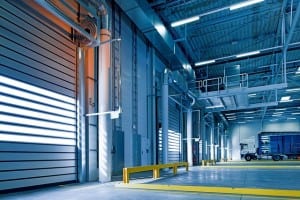 If you want to get your money’s worth when buying material handling equipment and reap tremendous rewards, then explore the wealth of options available at Douglas Equipment. Douglas Equipment is a leading distributor of casters and material handling equipment based in Miami, Florida. Here is a list of 7 helpful tips regarding what you need to consider when buying new material handling equipment.
If you want to get your money’s worth when buying material handling equipment and reap tremendous rewards, then explore the wealth of options available at Douglas Equipment. Douglas Equipment is a leading distributor of casters and material handling equipment based in Miami, Florida. Here is a list of 7 helpful tips regarding what you need to consider when buying new material handling equipment.
- Buy Products That Don’t Need Maintenance
If you’d rather not spend time and energy inflating caster wheels to their proper pressure, lubricating axles, or cleaning accumulated debris from swivel bearings, then be sure to investigate maintenance-free options when you choose casters and wheels. Pneumatic tires with air valves can be replaced with semi-pneumatic tires that don’t need to be inflated, and will never go flat. Closed-cell foam tires are available that accomplish the same function. Casters can be equipped with sealed bearings instead of Zerk lubrication fittings; they don’t need to be lubricated. Other options that reduce maintenance are thread guards and dust caps.
- Don’t Use General-Purpose Equipment for Specialized Tasks
For every piece of standard, off-the-shelf material handling equipment, there are dozens – sometimes hundreds – of customized versions, designed for specific material handling challenges. Examine your unique needs, and then choose a piece of equipment that was made to solve your special task. Drum handling equipment provides a good example. Lifting from the floor, moving, hoisting, tilting and pouring, even mixing contents – manufacturers have designed specific pieces of equipment optimized to perform each of these tasks. The same holds true for other types of equipment. Optimize your operations, by getting the right tool for the job.
- Buy Casters That Protect Your Floors
When it comes to floor protection, all casters are not equal. The wrong type of caster can lead to floor damage, such as that often found when cast iron wheels are used on concrete floors; or when composite wheels used in metalworking areas pick up metal shavings, then discharge those shavings in other parts of the building, causing damage. Poor wheel choices can lead to increased maintenance. Some materials leave marks on floors, and some tread designs will track debris from outdoor areas into office or lobby areas.
In each of these cases, look for wheel and caster designs that will protect floors rather than damage them. Manufacturers offer many options to enhance floor protection.
- Choose the Best Options for Your Casters
When you browse through a manufacturer’s catalog or a distributor’s website, you’ll see many illustrations of different casters. Frequently, a picture of a caster represents not just that caster– but also an entire family of casters of different sizes, each with many options. You may be able to choose from 10 wheel tread materials, and half a dozen hub styles. You can add brakes, or enhanced bearings, or strengthened kingpins. Each option was originally developed to solve a specific problem. Analyze your own situation – then specify caster options that work much better than standard, off-the-shelf models.
- Buy Special Casters for Higher-Speed Applications
It’s a little known fact, but most standard casters and their wheels are designed to be operated at walking speed. This is approximately 3 miles per hour. In many powered tow applications, speeds can be 5 miles per hour or faster. This may not seem like much of a difference, but the increase in speed can wreak havoc with many casters. Faster speeds can cause increased heating in wheel materials and impact damage on rough or uneven floors causing excessive mechanical damage.
To solve these and other problems, most caster manufacturers have high-speed versions of their products available. If you plan to use your material handling equipment at velocities faster than walking speed, make sure your casters and wheels are rated to perform at those higher speeds.
- Choose Materials That Will Stand up to Your Environmental Conditions
Material handling equipment is used in an astonishing array of situations. Many of which can be harmful to ordinary materials. To protect against harsh conditions such as extreme heat, corrosive vapors, harsh chemicals, high humidity, or even the antiseptic wash-downs used in hospitals and laboratories, manufacturers provide special versions of their equipment designed for these and other situations. If you need your equipment to stand up to an unfriendly environment, then make sure it’s made from materials that will help it last a long time.
- Consider Features That Improve Ergonomics
You have a range of choices if you want to improve workers’ performance and provide them with equipment that’s easier to operate, and protects them from injury. Improvements can be small such as choosing ergonomic casters designed to roll more easily or more quietly, thus protecting workers’ hearing. Or they can be large, such as buying a powered pallet truck that can lift a load up off the floor, transport it to its destination, and then raise it several feet into the air, ready to be shifted onto a shelf – all at the push of a button!
And the Best Tip of All – Contact Douglas Equipment!
The trickiest part about getting your money’s worth when purchasing material handling equipment is knowing about the hundreds or thousands of choices available for even the simplest piece of equipment. Fortunately, the customer service experts at Douglas Equipment are here to help you find the best options. Call our customer service department at 800-451-0030, or 305-888-3700 in the Miami area. You can also contact us online. We’ll be happy to help you make the best material handling choices!




